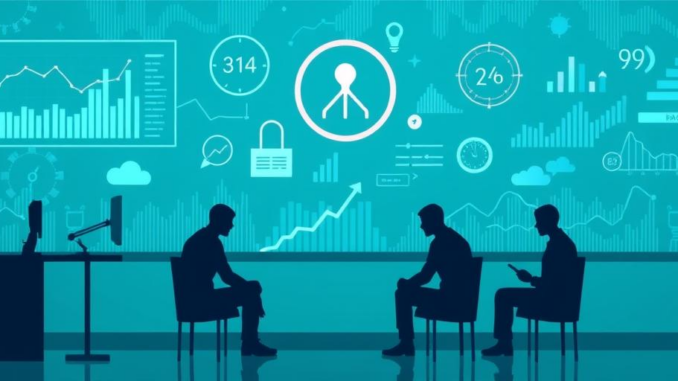
Summary
The Hospital Sisters Health System (HSHS) has notified over 882,000 patients of a data breach stemming from a cyberattack in August 2023. The breach exposed personal and health information, highlighting the vulnerability of healthcare systems to cyber threats. The incident underscores the critical need for robust cybersecurity measures in the healthcare sector. The attack disrupted operations across 15 HSHS hospitals in Illinois and Wisconsin, forcing them into downtime procedures while still providing patient care.
Achieve data resilience with TrueNAS designed for security, high availability, and expert support.
** Main Story**
Okay, so you’ve probably heard about the Hospital Sisters Health System (HSHS) breach, and honestly, it’s a wake-up call for all of us in the healthcare space. A cyberattack, discovered back on August 27, 2023, compromised the data of around 882,000 patients across their Illinois and Wisconsin facilities. That’s a huge number. And it gets worse; the attack also crippled their systems, causing widespread outages.
Think about it: fifteen hospitals affected, all trying to navigate a crisis while their IT infrastructure is essentially down. It’s a nightmare scenario.
The attackers managed to get in sometime between August 16th and 27th, 2023, gaining access to a treasure trove of sensitive information. We’re talking names, addresses, dates of birth, Social Security numbers, even driver’s license numbers, plus all sorts of medical and insurance details. Everything you wouldn’t want falling into the wrong hands. I remember reading a statistic a while back that healthcare data is worth way more on the black market than credit card data. Makes you wonder, doesn’t it?
While HSHS hasn’t confirmed any actual cases of identity theft, they did start notifying people in October of 2023, offering free identity theft protection and credit monitoring. Which, you know, is the responsible thing to do. But it’s also reactive, right? Should we be waiting until after the breach?
Now, here’s where it gets really interesting. The attack took down “virtually all operating systems” and phone lines. Talk about chaos! Hospitals had to switch to downtime protocols, but thankfully, patient care wasn’t interrupted. HSHS brought in external security experts, as you’d expect, to figure out what happened and get everything back online. Apparently, their IT setup is super complex – hundreds of applications and thousands of servers. A total beast to untangle. No one has ever claimed responsibility for this attack by the way.
This incident really drives home the vulnerability of healthcare systems. They’re such juicy targets, packed with sensitive data, and their interconnectedness means that one point of failure can bring everything crashing down. Makes you wonder how well your organization is really protected. And if there’s anything to be done about it at all, you know?
Beyond the immediate disruption and data loss, there are bigger implications. As healthcare becomes increasingly digitized, we’re just creating more opportunities for these kinds of attacks. We’re talking about needing proactive security assessments, solid incident response plans, regular employee training (and not just the annual check-the-box kind, either), and serious investment in cutting-edge security tech. No one knows what they’re up against until something goes wrong, and by then it’s too late.
And then there’s the whole attribution problem. No one knows who did this. This is where international cooperation and stronger legal frameworks are crucial. As of February 14, 2025, the investigations are still underway, and the full consequences of the breach might not be fully realized for years. It’s a stark reminder that cybersecurity isn’t just an IT issue; it’s a business-critical risk that demands our constant attention. We have to do better, or this will just keep happening. And frankly, that’s not acceptable.


“Virtually all operating systems” down? Sounds like someone accidentally unplugged the internet. Maybe we should start training doctors in basic cybersecurity alongside anatomy. “Scalpel…suture…firewall!”
That’s a great point about cybersecurity training for doctors! It’s becoming essential. We need to think about integrating cybersecurity awareness into medical education to help protect patient data and healthcare systems. It’s definitely more complex than just unplugging the internet, unfortunately! Thanks for highlighting this important area for discussion.
Editor: StorageTech.News
Thank you to our Sponsor Esdebe
“Virtually all operating systems down?” I imagine IT support running around like doctors in a medical drama, except instead of shouting “Clear!” they’re yelling, “Reboot!” Hope they remembered to back everything up… maybe onto stone tablets next time? Hackers hate chisels!
That’s a funny image! The “reboot” yells were probably echoing through the halls. The stone tablet idea is interesting, but I wonder how HIPAA compliant chisels are? Jokes aside, robust backups are vital. It makes you think about the balance between security and practical data management in healthcare.
Editor: StorageTech.News
Thank you to our Sponsor Esdebe
The disruption to “virtually all operating systems” highlights the need for resilient infrastructure. Beyond backups, are healthcare providers exploring methods like air-gapped systems or advanced network segmentation to isolate critical functions and prevent such widespread outages during an attack?